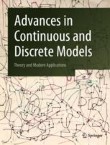Harbir Antil is Founder and Director at the Center for Mathematics and Artificial Intelligence as well as a Professor in the Department of Mathematical Sciences at George Mason University in Virginia, USA. His research interests include calculus of variations, inverse problems, numerical analysis, scientific computing and software development, and dimensional reduction.
Recent Publications
Xue-Cheng Tai is a professor at the Hong Kong Center for Cerebro-cardiovascular Health Engineering (COCHE). His research interests include numerical PDEs, optimization techniques, inverse problems, and image processing.
Recent Publications
Enrique Zuazua is Chair for Dynamics, Control and Numerics in the Department of Data Science at Friedric-Alexander Universität in Germany. his fields of expertise include PDEs, Control Theory, and Numerical Analysis.
Recent Publications
